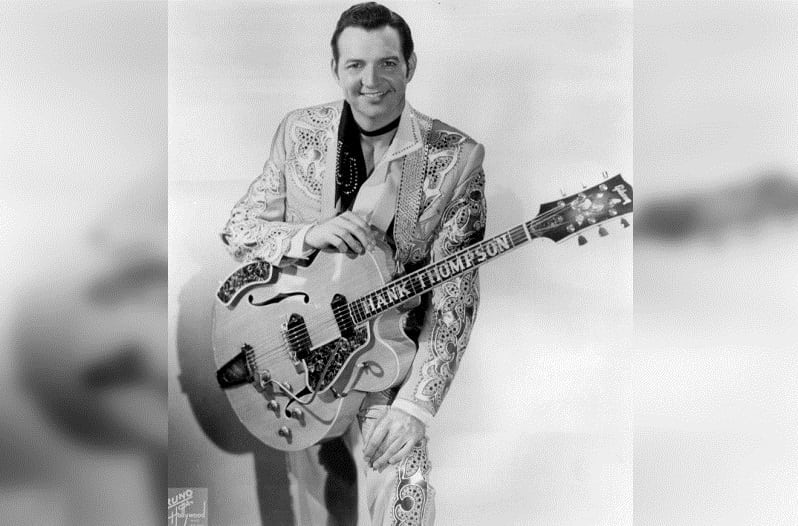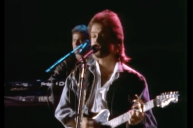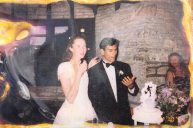From his 1940's radio debut as a high school student in Waco, Texas to his Nov. 6, 2007 passing, Hank Thompson experienced a bulk of country music history firsthand.
Born Henry William Thompson on Sept. 3, 1925, the Texas native grew up hearing Ernest Tubb on the radio, watching the films of Gene Autry, and listening to early 78s by Jimmie Rodgers and Vernon Dalhart. Although the talented singer and songwriter loved country music, his experience in the Navy and post-secondary education choices, including correspondence courses from Princeton University, pointed to a potential career as an electrical engineer instead of a radio star. Fortunately, the regional success of early singles "Whoa Sailor" and "California Women" on Dallas-based Globe Records and Blue Bonnet, respectively, propelled him to the mainstream.
His first big break came when singing cowboy Tex Ritter set up a deal with Capitol Records. Early big label singles like "Rub-a-Dub-Dub," "Humpty Dumpty Heart" and "The Blackboard of My Heart" told stories of puppy love through the lens of kids' songs, fairy tales, and grammar school analogies.
A Marriage of Dance Hall and Barroom Sounds
In the early '50s, his preexisting backing band The Brazos Valley Boys adopted a sound that blended Thompson's smooth baritone vocals and honky-tonk tendencies with backing tracks that modernized and altered the Western Swing sound associated with Bob Wills, Spade Cooley, and others. Guitarist Billy Gray spearheaded this marriage of dance hall and barroom sounds. Cherry-picking past Texas music elements that suit a vocalists' strengths was a strategy that worked in decades to come for artists ranging from Asleep at the Wheel to George Strait.
The band's part Western swing, part honky-tonk prime earned guitarist Merle Travis a well-earned reputation and catapulted Thompson into the same stratosphere as the other great Hanks—Williams, Snow and, a few years later, Locklin. The band's defining hit remains 1951's "The Wild Side of Life," a reinterpretation of "The Great Speckled Bird" that replaced fairy tales with a story about adultery. It prompted Kitty Wells to record one of the greatest answer songs of them all, "It Wasn't God Who Made Honky Tonk Angels." Thompson also inspired talented women in a more direct way, serving as an early career mentor to Oklahoma-born stars Wanda Jackson and Jean Shepard.
Changing With the Times
Read More: Remembering Merle Travis, a Dynamite Picker and Poet of the Coal Mines
Be it a proto-outlaw interest in drinking songs or a case of "Tear in My Beer" revivalism, Thompson skipped his Nashville sound phase in the '60s in favor of keeping his familiar sound intact for "Hangover Tavern," "A Six Pack to Go," "Smoky the Bar" and "On Tap, In the Can or In the Bottle." He was also a live album pioneer for Capitol with 1961's Live at the Golden Nugget. The preserved Las Vegas concert set a high standard for label mate Buck Owens' stellar live albums.
In the 1970s, Thompson kept doing his own thing for Dot Records, recording everything from a 25th-anniversary album to tributes to both Nat King Cole and the Mills Brothers.
Thompson reemerged in 1997 with the Curb Records album Hank Thompson and Friends. The 1989 Country Music Hall of Fame inductee teamed up with Vince Gill, Marty Stuart, George Jones, Tanya Tucker, and other students of country music for a master class in honky-tonk and Western swing.
Three years later, the Lloyd Maines-produced Seven Decades, a collection of past country hits and fresh material, became the legend's final album. He continued playing sporadically with a version of his Brazos Valley Boys until the lung cancer that ultimately claimed his life forced him into retirement.




